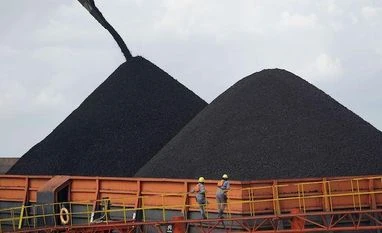Constant policy flips over coal imports has fazed state-owned power generating companies (gencos) and independent power producers (IPPs) with a cumulative capacity of 108 gigawatt. The Centre, on the one hand, is pressuring them into using imported coal — 5x costlier than domestic fuel. On the other, state governments are wary of paying for imported coal, which will crank up electricity costs.
At the same time, two weeks after state and privately-owned gencos were told to import coal for 10 per cent blending, the Union Ministry of Power has now asked them to keep their tenders ‘in abeyance’. The Centre has directed national miner Coal India (CIL) to import coal for state and private gencos.
The directive follows a push-back from several states that refused to pay higher tariffs due to imported coal. Uttar Pradesh and Maharashtra are leading the pack.
A senior executive of a Maharashtra-based IPP said the Maharashtra Electricity Regulatory Commission (MERC) in a recent hearing of its plea observed that arranging fuel supply is the responsibility of the IPP and the state is in no way liable to pay higher tariff if it imports coal. On the plea of advance payment by distribution companies (discoms), MERC said a genco cannot import coal in anticipation, he clarified.
Meanwhile, Uttar Pradesh Power Corporation (UPPCL) has issued a blanket order, directing all IPPs in the state – Reliance Power, Bajaj Hindusthan, Lanco, and Prayagraj (Tata Power) - to not import coal. The department has cited costlier imported coal as a major determinant, saying the state will not pay higher power rates arising from blending imported coal.
“UPPCL said state gencos will have to bear an additional cost of Rs 10,000 crore if they import coal. It has even asked IPPs to cancel tenders, if any have been issued,” said a sector executive.
Industry experts said several other states with cash-strapped discoms, such as Punjab, are disinclined to import coal.
After facing adverse reaction from states, the Union Ministry of Power on late Saturday night reversed its earlier directive to say CIL will now import coal for states.
“In view of suggestions received from states, it was decided in the meeting that CIL would import coal for blending on government-to-government (G2G) basis and supply this imported coal to state gencos and IPPs on composite billing, along with domestic coal,” said the ministry’s directive, reviewed by Business Standard. It further asked state gencos and IPPs to ‘keep in abeyance’ any tender issued for importing coal for blending and instead ‘await price discovery by CIL through the G2G route’.
But the industry is of the view that constant directive flip-flops and dearth of coordination between Centre and states will cost heavily.
“Private gencos are now facing working capital pressure on account of increase in fuel cost attributable to imported coal and deteriorating quality of domestic coal, coupled with payment delays from states leading to record high dues,” said an executive.
The dues of discoms to gencos have touched a record high of Rs 1 trillion, of which the lion’s share is of private gencos.
The power ministry on May 5 issued a directive under Section 11 of the Electricity Act, asking them to import coal for blending up to 10 per cent at their generation units. This was done to reduce pressure on domestic supply.
On May 18, it warned all gencos that the coal blending benchmark would be increased to 15 per cent, from the present-day 10 per cent, if they do not import coal by the end of this month.
State and private gencos will cumulatively require 38-40 million tonnes (mt) of imported coal for blending at 10 per cent. Central government-owned NTPC is in the process of issuing tenders worth 20 mt to meet its imported coal blending target. Due to the high cost of imported coal, power tariff from NTPC units is scheduled to go up by at least 50-70 paise. This will have to be borne by consumers.
For state and private gencos, they will need regulatory approval for transferring the additional cost of imported coal on to consumers. Invoking Section 11 of the Act again, the power ministry last week allowed state and private units to charge a compensation tariff in lieu of importing coal.
Unlock 30+ premium stories daily hand-picked by our editors, across devices on browser and app.
Pick your 5 favourite companies, get a daily email with all news updates on them.
Full access to our intuitive epaper - clip, save, share articles from any device; newspaper archives from 2006.
Preferential invites to Business Standard events.
Curated newsletters on markets, personal finance, policy & politics, start-ups, technology, and more.
)